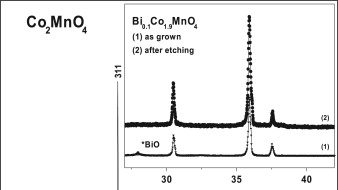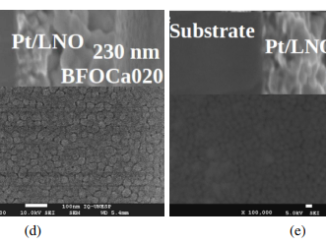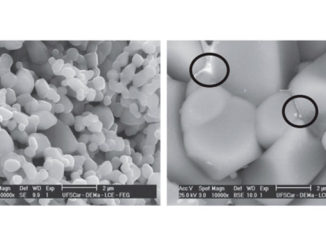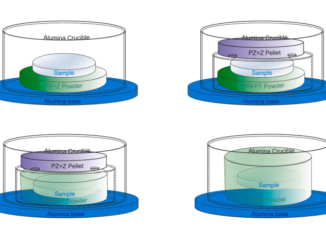
Intense photoluminescence emission at room temperature in calcium copper titanate powders
Abstract: We report the structural and magnetic properties of Co2MnO4, partially substituted by Bi at the octahedral site. Bismuth enhances ferromagnetism due to a decrease of the Co2+–Co2+ antiferromagnetic interactions and an increase of the Mn3+–Mn4+ exchanges. Spurious phases (magnetic and/or nonmagnetic oxides) can easily form because of the large differences between the ionic radii of Bi3+ and Co3+, hiding or altering the intrinsic physical properties of the main BixCo2−xMnO4 phase. An easy way to eliminate the secondary phases is using acid reagents. Short-time etching of Bi0.1Co1.9MnO4 using nitric acid was successfully used, keeping most of the properties of the initial compound, with no alteration of the crystallographic structure. Final stoichiometry was respected (∼Bi0.08Co1.82MnO4), meaning that the material after etching definitely contains bismuth elements in its structure and the observed properties are intrinsic to the oxide spinel. Additional experiments were performed as a function of the synthesis conditions, showing that an optimal pH value of 7 allowed the best magnetic response of the non-doped material.
Author(s): Moura, F.; Simoes, A. Z.; Deus, R. C.; et al.
Ceramics International
Volume: 39 Issue: 4 Pages: 3499-3506 Published: 2013
DOI: https://doi.org/10.1016/j.jmmm.2013.02.047
PDF: Intrinsic magnetic properties of BixCo2−xMnO4 spinels obtained by short-time etching




